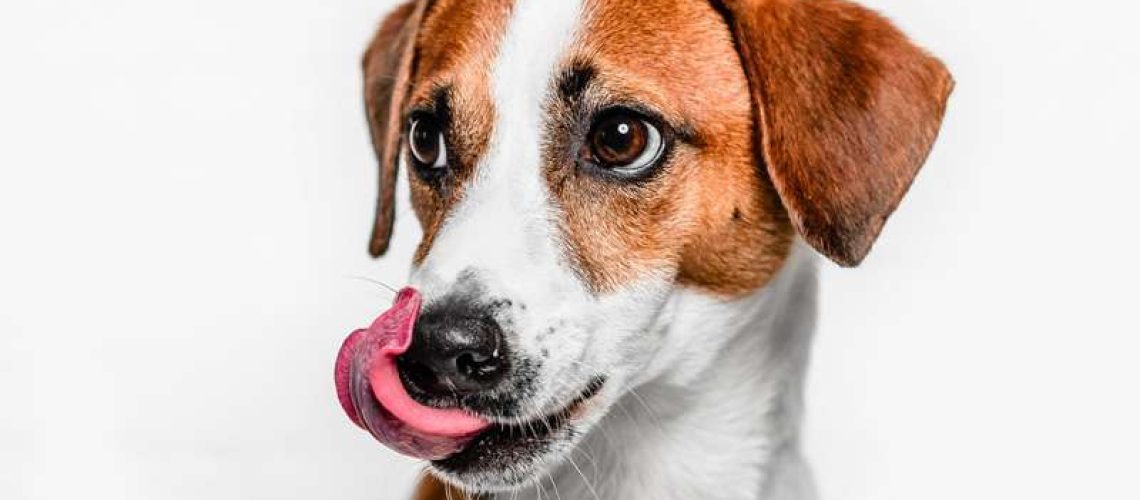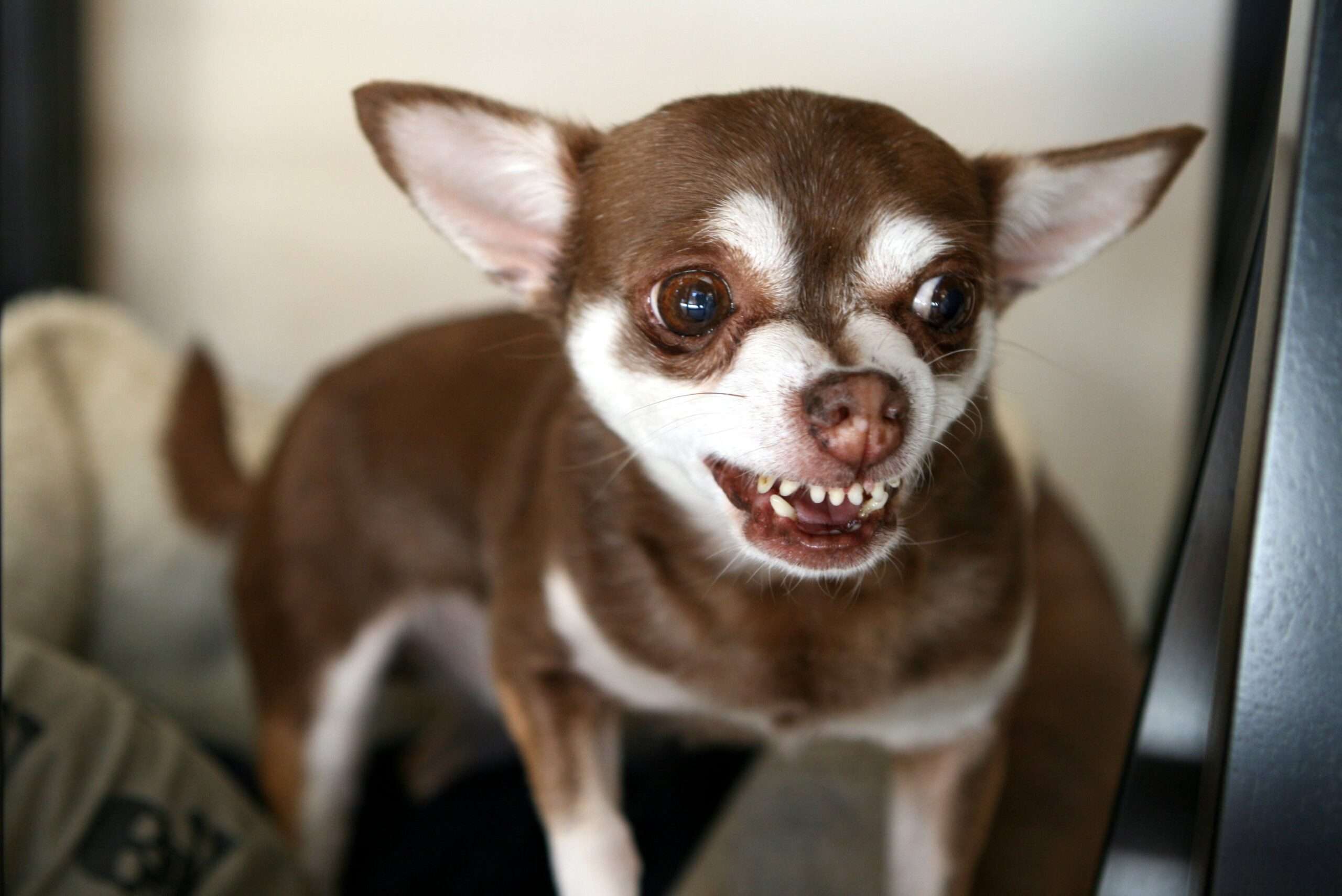Key Takeaways:
- Lip licking in dogs can be a sign of stress or anxiety.
- It is important to observe other body language cues along with lip licking to understand the dog's emotional state.
- Dogs may also lick their lips as a way to appease or show submission to humans or other dogs.
- Lip licking can occur in various situations, such as during grooming, when meeting new people or animals, or when faced with a potentially threatening situation.
- If a dog is excessively and persistently licking their lips, it may be necessary to consult a veterinarian or professional trainer to address underlying issues.
Are you a dog lover? Do you want to deepen your connection with your furry friend and understand them better? Well, get ready to unlock the secret language of dogs! In this article, we will explore the fascinating world of dog body language, focusing specifically on lip licking. You may be wondering why this topic is important - let me tell you, understanding your dog's body language can help prevent misunderstandings and strengthen your bond. Did you know that dogs use lip licking as a way to communicate their feelings and intentions? By learning how to interpret this subtle behavior, you'll be able to respond appropriately and ensure a harmonious relationship with your four-legged companion. So, let's dive in and discover the hidden meanings behind those adorable lip licks that our canine friends use to express themselves!
Why do dogs lick their lips?
Lip licking is a common behavior that dogs exhibit, and it can have various meanings. One reason why dogs lick their lips is to clean themselves or remove food particles from their mouth. Just like how we humans use our tongues to clean our lips after eating, dogs do the same. It's their way of keeping themselves tidy.
Another reason why dogs lick their lips is as a form of communication. Dogs are skilled at using body language to convey messages, and lip licking is one way they do this. When a dog licks its lips in the presence of another dog or human, it can be a sign of submission or appeasement. It's like saying, "I mean no harm" or "I respect your authority."
How dogs communicate through lip licking
Dogs are masters at non-verbal communication, and lip licking is just one part of their repertoire. When a dog licks its lips in certain situations, it can convey different messages:
- If a dog licks its lips when meeting a new person or another dog, it may be showing that it's not a threat and wants to establish friendly intentions.
- In some cases, lip licking can indicate discomfort or stress. For example, if a dog is being hugged tightly by someone and starts licking its lips excessively, it could mean that it's feeling anxious or overwhelmed.
- Sometimes, dogs may lick their lips when they anticipate something good happening. For instance, if you're holding a treat in your hand and your dog starts licking its lips while looking at the treat, it's likely excited about the prospect of getting the tasty reward.
Common situations that make dogs lick their lips
There are several common situations in which dogs may lick their lips:
- During mealtime: Dogs often lick their lips before and after eating to clean up any food residue or to show anticipation for the meal.
- When feeling anxious or stressed: Dogs may lick their lips as a way to self-soothe when they're in uncomfortable or stressful situations. It's like a coping mechanism for them.
- When meeting new people or animals: Lip licking can be a sign of politeness or deference when dogs encounter unfamiliar individuals. It's their way of saying, "I come in peace."
Can lip licking mean a dog is anxious or stressed?
Yes, excessive lip licking in certain contexts can indicate that a dog is feeling anxious or stressed. When dogs are put in uncomfortable situations, they may resort to lip licking as a way to calm themselves down. For example, if a dog is scared of thunderstorms and starts excessively licking its lips during a storm, it's likely showing signs of anxiety.
It's important to pay attention to other body language cues along with lip licking to get a better understanding of how the dog is feeling. If you notice other signs of stress such as panting, trembling, or avoiding eye contact, it's essential to provide comfort and remove the source of stress if possible.
Understanding a dog's body language beyond lip licking
Lip licking is just one piece of the puzzle when it comes to understanding a dog's emotions. Dogs communicate through various body language signals, and interpreting these signals can help us better understand what they're trying to convey.
Some other important body language cues that dogs use include:
- Tail wagging: The position and speed of a dog's tail wag can indicate its mood. A relaxed, loose wag often means the dog is friendly and happy, while a stiff or low tail wag might suggest caution or fear.
- Ear position: Dogs' ears can tell us a lot about their emotional state. Ears held forward or in a natural position generally indicate attentiveness, while flattened ears may signal fear or submission.
- Body posture: The way a dog holds its body can reveal whether it feels confident, scared, or defensive. A relaxed posture with weight evenly distributed usually indicates comfort, whereas a tense or crouched posture may indicate fear or aggression.
Tips to help a dog feel more comfortable if they lick their lips excessively
If you notice that your dog is frequently licking its lips in certain situations, there are several steps you can take to help them feel more at ease:
- Avoid putting your dog in stressful situations whenever possible. Pay attention to their body language and remove them from any environment or interaction that seems to make them uncomfortable.
- Provide a safe space for your dog where they can retreat when they need some alone time. This could be a designated area in your home with their bed and toys.
- Use positive reinforcement training techniques to build your dog's confidence and trust. Reward them for calm behavior and gradually expose them to new experiences in a controlled and positive manner.
The importance of respecting a dog's body language, including lip licking
Respecting and understanding a dog's body language is crucial for maintaining their well-being and preventing potential conflicts. By recognizing the signs of stress or anxiety, we can adjust our approach and create an environment where dogs feel safe and comfortable.
Remember, every dog is an individual, and their body language may vary. It's essential to observe and learn your own dog's unique cues to establish effective communication and foster a strong bond based on trust and understanding.
In conclusion, when a dog licks its lips, it can mean different things depending on the situation. It could be a sign of anxiety, stress, or even anticipation. Understanding a dog's body language, including lip licking, can help us communicate better with our furry friends.
What does licking lips mean in body language?
Perhaps you are simply lost in thought about what to have for lunch, but to someone you're talking to, licking your lips can be interpreted as a sign of sexual attraction. Additionally, wetting your lips while discussing a romantic partner may indicate that you are sexually content and deeply in love.
Does lip licking always mean a dog is uncomfortable?
Dogs communicate without words by using various body language signals, vocalizations, and sounds to express their emotions to humans and other dogs. When a dog licks its lips, it often indicates that it is feeling uneasy or anxious in a particular situation. It can also be a way of showing submission.
Do dogs lick their lips when they're happy?
There are various reasons why dogs may lick their lips, such as showing excitement or nervousness. However, lip licking can also indicate an underlying health issue. It is crucial to interpret a dog's body language and consider the possible reasons for lip licking.
Does dog licking lips always mean anxiety?
If your dog shows signs of panting, salivating, yawning, or licking its lips without any obvious physical cause (such as being hot, exercising, tired, or smelling food), it is likely that the dog is experiencing anxiety or fear. These behaviors are often misunderstood and attributed to other reasons.
Does licking lips mean lying?
Changes in the autonomic nervous system can cause liars to experience either sweating in certain areas of the face (such as the upper lip, forehead, chin, and around the mouth) or dryness in the mouth and eyes. These changes may manifest as excessive blinking or squinting, licking or biting of the lips, or swallowing hard. This information is according to Glass, as of November 30, 2018.
Is licking lips a tell?
In addition, individuals who are not telling the truth often experience a dry sensation in their mouth and frequently swallow or lick their lips. If the person is restricting their movements, pressing their lips together, or displaying a clearly negative response to the question, you should be on alert, as stated by psychologytoday.com on February 7, 2011.

















